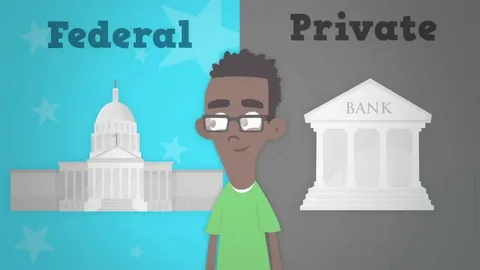The Necessity of Private Student Loans for Education

Education remains one of the most significant investments an individual can make, yet it is also one of the most expensive. Rising tuition fees, coupled with the costs of housing, textbooks, and other essentials, often create financial barriers for students pursuing higher education. While scholarships, grants, and federal loans provide a foundation for funding, they do not always cover the entire cost of attendance. In these situations, private student loans become a crucial resource for students striving to achieve their academic and career goals.
The Rising Costs of Higher Education
Over the past few decades, the cost of attending college or university has risen dramatically. According to reports, tuition fees at public institutions have increased by nearly 213% since the 1980s, with private institutions seeing similar spikes. In addition to tuition, students face ancillary expenses such as housing, meal plans, transportation, and technology, all of which can add up quickly.
For many students, the financial aid provided through scholarships, grants, or federal loans is insufficient to bridge the gap. Federal loans, while advantageous in terms of fixed interest rates and repayment options, are capped at certain limits. These limits often fall short of what is needed to fully fund an academic program, particularly for students attending private universities or out-of-state schools. It is in these instances that private student loans become a lifeline, offering the financial support necessary to make education accessible.
Addressing Funding Gaps
Private student loans serve as a solution for students who face funding gaps after exhausting all other financial aid options. These loans, offered by banks, credit unions, and online lenders, provide flexibility in covering costs that federal aid cannot. They allow students to borrow amounts that align more closely with their total expenses, ensuring that no critical aspect of their education is left unfunded.
This flexibility is particularly important for graduate students, professional school attendees, and those enrolled in specialized programs, where tuition and fees can be significantly higher than in undergraduate programs. For these students, private student loans offer the additional resources required to complete their education and achieve their goals.
Why Some Students Need Private Student Loans
Not every student has access to sufficient financial aid through traditional means. Here are some reasons why private student loans are a necessity for certain individuals:
- Insufficient Federal Loan Limits: Federal student loans have borrowing caps, which may not cover the full cost of attendance, particularly for high-cost institutions or programs. Private student loans provide the supplemental funding needed to bridge this gap.
- Non-Eligibility for Federal Aid: Some students, such as international students or those enrolled in non-degree or certification programs, may not qualify for federal aid. Private student loans offer an alternative financing option for these individuals.
- Additional Expenses Beyond Tuition: Costs such as study abroad programs, internships, or professional certifications often fall outside the scope of federal financial aid. Private student loans can be tailored to cover these unique expenses.
- Parent PLUS Loan Limitations: Families who rely on Parent PLUS loans may find that they are not enough to cover all costs. In such cases, private loans can provide additional support.
The Flexibility of Private Student Loans
Private student loans offer several advantages that make them a valuable resource for students in need. Borrowers can often choose from a range of repayment terms, interest rate structures, and loan amounts, allowing them to customize their loans to fit their specific financial situation.
Some private lenders offer competitive interest rates, particularly for borrowers with strong credit scores or co-signers. Additionally, many lenders provide tools to help students manage their loans, such as autopay discounts, flexible repayment plans, and even forbearance options in times of financial hardship. These features make private student loans a practical choice for those who require additional financial support.
Private Student Loans: Balancing Responsibility and Opportunity
While private student loans provide critical financial support, they also come with responsibilities. Unlike federal loans, which offer fixed interest rates and income-driven repayment plans, private loans often have variable interest rates and stricter repayment terms. Borrowers must carefully evaluate their financial situation and consider factors such as future earning potential, monthly payments, and long-term affordability.
Students need to explore all available options before turning to private loans. This includes applying for grants, scholarships, and work-study programs, as well as seeking advice from financial aid counselors. However, when used responsibly, private student loans can be a powerful tool for overcoming financial barriers and accessing education.
The Role of Private Student Loans in Today’s Economy
In an increasingly knowledge-driven economy, higher education is often a prerequisite for career success. Fields such as technology, healthcare, and engineering require specialized training and advanced degrees, making access to education more critical than ever. Private student loans play a vital role in enabling students to pursue these opportunities, helping to develop the skilled workforce needed for economic growth.
Moreover, private student loans contribute to social mobility by allowing individuals from diverse financial backgrounds to access higher education. By filling the gaps left by traditional funding sources, these loans empower students to achieve their academic goals, improve their career prospects, and contribute to society.
Conclusion
Private student loans are an essential resource for students who face financial challenges in pursuing higher education. While federal loans, grants, and scholarships form the foundation of educational funding, they are not always sufficient to cover the full cost of attendance. For students who encounter funding gaps or have unique financial needs, private student loans offer a solution that ensures access to education and the opportunities it provides.
By understanding the role of private student loans and using them responsibly, students can achieve their academic and career goals without compromising their financial future. These loans, while requiring careful consideration, represent a valuable tool for overcoming financial barriers and unlocking the transformative power of education.






